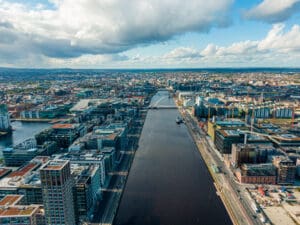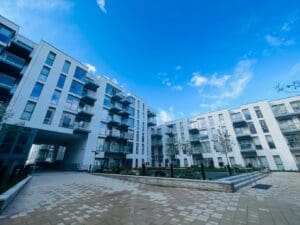What Documents Do You Need to Rent a Property in Ireland?
Applying for a rental property in Ireland involves more than just finding the right home. To secure your ideal property in Dublin’s competitive rental market, you’ll need to provide landlords or letting agents with the appropriate documentation. This blog will guide you through the process, outlining the key documents landlords typically request and offering tips on preparing a successful rental application.
At DublinRelo, we focus exclusively on helping renters find and secure housing. Here’s what sets us apart:
- Comprehensive Support: From organising your documents to submitting your application, we guide you through every step.
- Market-Wide Search: Unlike traditional agents who only notify you of their listings, we search the entire market to find the best matches.
- No Property, No Fee: You only pay if we secure your rental.
If you’re wondering what documents landlords need when applying for an apartment or house in Ireland, this guide has all the answers.
Why Do Landlords Require Documentation?
Landlords request documentation to verify your identity, assess your financial stability, and ensure you’re a suitable tenant. These documents give landlords confidence that you’ll pay rent on time, maintain the property, and adhere to the lease agreement.
In Dublin’s competitive rental market, providing complete and well-prepared documentation can significantly improve your chances of securing a property.

Essential Documents Landlords Require
1. Proof of Identification
This is the most basic requirement. Landlords use it to confirm your identity. Acceptable forms of ID include:
- Passport
- Driver’s Licence
- Irish Residence Permit (for non-EU residents)
2. Proof of Income
Proof of income reassures landlords that you can afford the rent. Common forms include:
- Payslips (last three months)
- Employment contract confirming your salary and employment status
- If self-employed: Tax returns or a letter from your accountant
3. Bank Statements
Recent bank statements (usually covering the past three months) allow landlords to verify your financial stability.
4. References
References are a key part of your application. Landlords may request:
- Previous Landlord Reference: A letter confirming you paid rent on time and maintained the property.
- Employer Reference: A letter confirming your employment and salary details.
5. Guarantor Information (If Required)
If you don’t meet the landlord’s financial requirements, they may request a guarantor. Guarantors need to provide:
- Proof of ID
- Proof of income or financial stability
- Signed agreement to cover rent if you default
6. Proof of Residency or Address
Some landlords request proof of your current address, such as a utility bill or previous lease agreement.
7. Deposit and Advance Rent
Most landlords require:
- A deposit equivalent to one month’s rent.
- The first month’s rent paid upfront.
Additional Requirements for Online Applications
Online applications are becoming more common, especially for renters moving to Ireland from abroad. When applying online, you may also need:
- Digitally scanned copies of your documents.
- Contact information for references who can be reached quickly.


What Can a Landlord Legally Ask For?
In Ireland, landlords are entitled to request documents to verify your suitability as a tenant. However, there are limits to what they can ask for:
- Allowed: Proof of ID, proof of income, references, bank statements.
- Not Allowed: Sensitive personal information like credit card details or private health information.
Being aware of these distinctions can help you navigate the process confidently.
How DublinRelo Simplifies the Process
At DublinRelo, we understand the challenges renters face in preparing rental applications. Our tailored support ensures you’re ready to compete in Dublin’s competitive market:
- Document Review: We help you gather and review all required documents.
- Market Access: We search the entire market, including private listings, to find the best properties.
- Personalised Support: From organising viewings to presenting a strong application, we’re with you every step of the way.
Unlike traditional agents, who work for landlords, we focus exclusively on renters, ensuring your needs are our top priority.


Tips for a Successful Rental Application
Here’s a breakdown of some of Dublin’s most popular areas for renters:
1. Ranelagh, Rathmines, Donnybrook, and Ballsbridge
- Who it’s for: Renters seeking an upscale, residential environment close to the city centre.
- What to expect: Leafy streets, excellent amenities, and a mix of apartments and houses.
- Lifestyle: Ideal for young professionals who value a quieter setting with easy access to city-centre activities.
2. Dublin 1, 2, 7, and 8
- Who it’s for: Renters looking for vibrant, central locations with a mix of housing options.
- What to expect: Close proximity to city-centre offices and a lively social scene.
- Lifestyle: Perfect for professionals who prioritise convenience and a bustling atmosphere.
3. North and South Suburbs (e.g., Dundrum, Drumcondra, Santry)
- Who it’s for: Renters seeking more affordable options outside the city centre.
- What to expect: A mix of houses and apartments, with longer commutes to central Dublin.
- Lifestyle: Suitable for those who prefer a quieter environment with a lower cost of living.
Final Thoughts
Navigating Dublin’s rental market can be challenging, but being prepared with the right documents and support makes all the difference. At DublinRelo, we specialise in helping renters secure high-quality housing by offering end-to-end support and a renter-first approach.
Contact us today to start your journey and make your move to Dublin stress-free!
This blog provides over 1,000 words of SEO-optimised content, incorporating all the target search terms naturally while focusing on Ireland’s rental market. Let me know if you’d like further refinements!